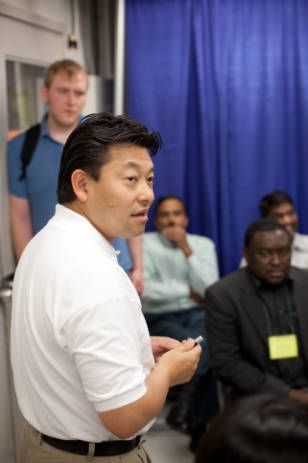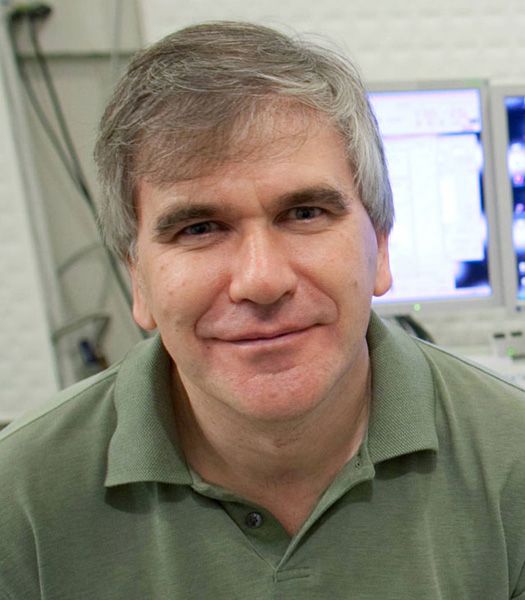In the world of big-time, small-scale characterization, the Lehigh Microscopy School has been leading the way for 50 years, and shows no signs of slowing down.
The school’s 2020 offering, May 31 to June 5, will mark a half century since Lehigh University professor Joe Goldstein founded the annual weeklong program to keep colleagues and professionals abreast of developments in scanning electron microscopy.
According to Chris Kiely, a professor of materials science and engineering in the P.C. Rossin College of Engineering and Applied Science who serves as the school’s current director, it is the faculty, staff, and invited lecturers who bring the program to life each year and continue to uphold its long-standing reputation for quality among the representatives of industry, national labs, and academia in attendance.
“There are folks who attend who have never seen these instruments before, and quite a few who have worked with them and are looking to gain more experience,” says Kiely. “We teach them about the scanning electron microscope, how it’s built, what it can do, and how it operates. We’ll also show them how versatile it is, and the various ways for setting it up to do different tasks.”
The Lehigh Microscopy School is open to interested engineers, scientists, and technicians, as well as members of the media. To register or learn more, visit lehigh.edu/microscopy.
About the Lehigh Microscopy School
The first Lehigh Microscopy School was held in the summer of 1970 with three lecturers, a dozen students, and a single scanning electron microscope (SEM). Since then it has grown to become the largest school of its kind. Now in its 50th year, the weeklong school offers basic and advanced courses that combine theory with lab practice. Manufacturers’ microscopes supplement the nine scanning and transmission electron microscopes in Lehigh’s Materials Characterization Facility, one of the best equipped of its kind in the United States.
This year’s course offerings at the Lehigh Microscopy School include: Scanning Electron Microscopy and Microanalysis, Transmission Electron Microscopy, Quantitative X-ray Microanalysis, and Focused Ion Beam Instrumentation and Applications. All courses include a lab component where small groups of students can experience practical applications of the lecture topics.
“We keep them working—from 8:30 in the morning until about 9:30 at night,” says Kiely, who is also one of the lecturers. “If a working professional takes time away from their busy schedule to attend this school, we want to make certain they leave campus with new knowledge and tools to help them in their own research and development pursuits.”
To date, more than 7,000 students from about 38 countries and all 50 states have attended. At least 20 of the school’s lecturers have served as president of one of the major microscopy, microanalysis, or materials societies; more than 25 lecturers will participate this year.
To register or learn more, visit lehigh.edu/microscopy.


